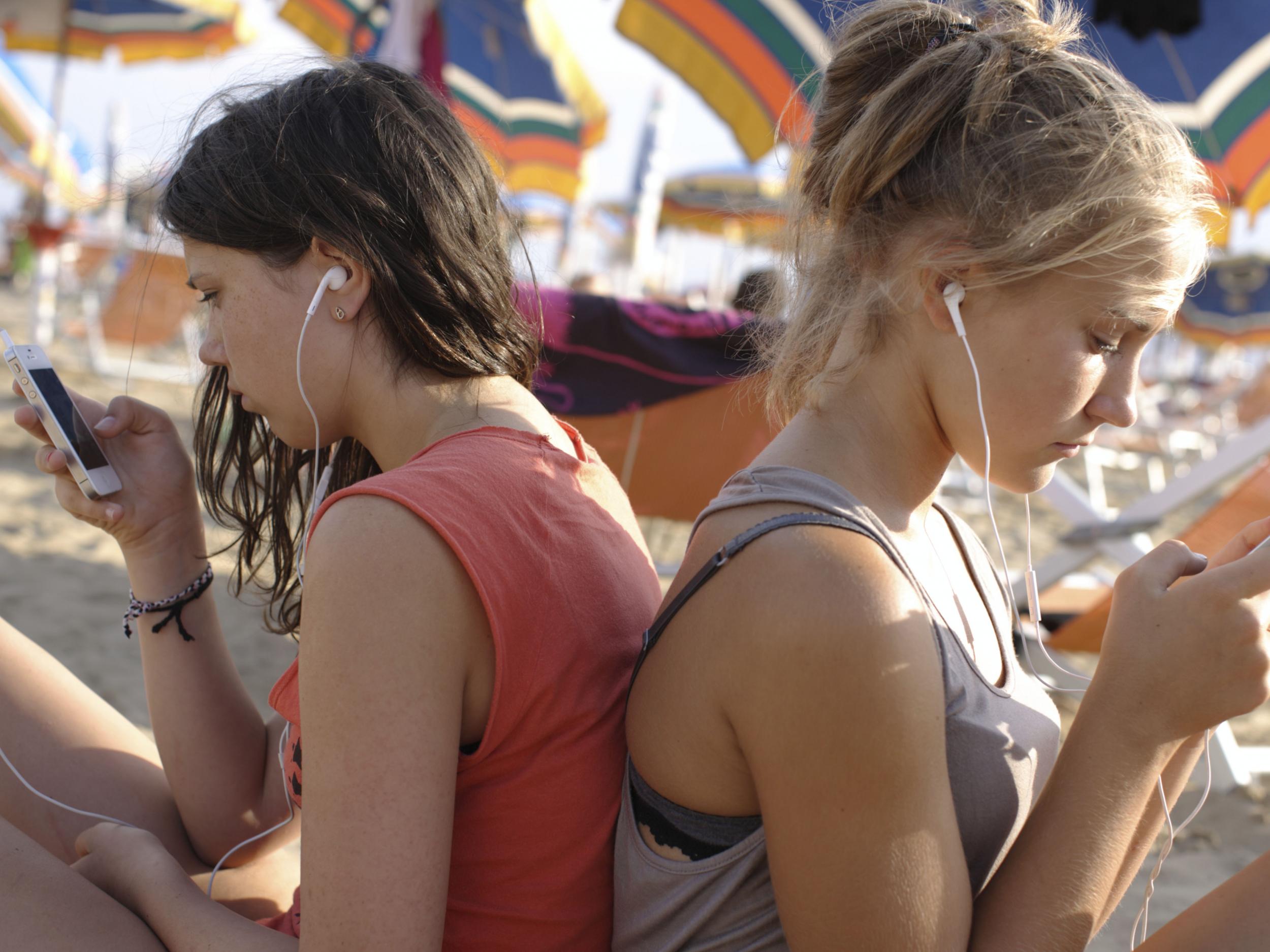Dramatic rise in screen time putting children's health at risk, WHO warns
Report found 'continuous steep increase' in technology usage since 2002

A dramatic increase in screen time is putting children's health at risk, the World Health Organisation (WHO) has warned.
A rise in social media usage and increasing amounts of time spent in front of tablets, computers and smartphones is causing children as young as 11 to suffer an increased risk of poor health, new research revealed.
The report also suggested the vast majority of young people were failing to take the recommended level of exercise each day.
The findings showed a “continuous steep increase” between 2002 and 2014 in the number of children using technology for two hours or more each weekday.
Usage rates increased for both sexes, but tripled for girls aged 15 or over.
In 2014, 74.6 per cent of girls and 76.5 per cent of boys aged 11 to 15 in England used a computer, tablet or phone for two or more hours on a weekday.
In Scotland, these figures rose further to 79.9 per cent for girls and 83.6 per cent for boys.
Of 42 countries studied by the WHO, Scotland came top for computer use by girls, while Wales was fourth and England seventh.
More than 200,000 children were surveyed by the WHO in schools in 42 countries, including 5,335 in England, 5,932 in Scotland and 5,154 in Wales.
A breakdown by age showed children as young as 11 spending a large chunk of time online.
Lead author Dr Jo Inchley, from the University of St Andrews, said the rise in social media was having an impact on young people.
"We know that a positive impact of social media is social connectedness and the sense of interaction. But we also know there are risks, such as cyberbullying and impact on mental health, as well as things like missing out on sleep,” she said.
"Also, there are longer-term impacts on physical health from being sedentary. One of the main challenges for us is that this kind of activity (social media and computer use) is so much part of young people's lives these days, how do we manage this and the health risks associated with it? It's about reducing time being spent sedentary, and ensuring that children still have opportunity to be active. We really need to start addressing these challenges now."
Tam Fry, chairman of the National Obesity Forum, said gadgets were taking their toll on children’s wellbeing.
He said: "Adolescents are now slaves to handheld devices and this is doing nothing for their health.
"Incredibly, teenagers believe that playing computer games with their friends from the privacy of their bedrooms is a form of physical activity and rebel if grounded from their Facebooks or Instagrams."
The report also found that while TV-watching is declining, only a minority of youngsters watch less than two hours a day.
Only about a fifth of boys in England, Wales and Scotland meet the Government recommendation of exercising for an hour a day. The figure is worse for girls, with only 14 per cent in Scotland and 12 per cent in England and Wales reaching the target.
Dr Inchley said: "We need to find ways to make young people more active.
"Maybe they are getting lifts in the car, or are not out playing in the streets any more in the way they used to."
The report is being presented at the European Congress on Obesity in Porto, Portugal.
Additional reporting by Press Association
Join our commenting forum
Join thought-provoking conversations, follow other Independent readers and see their replies
Comments
Bookmark popover
Removed from bookmarks